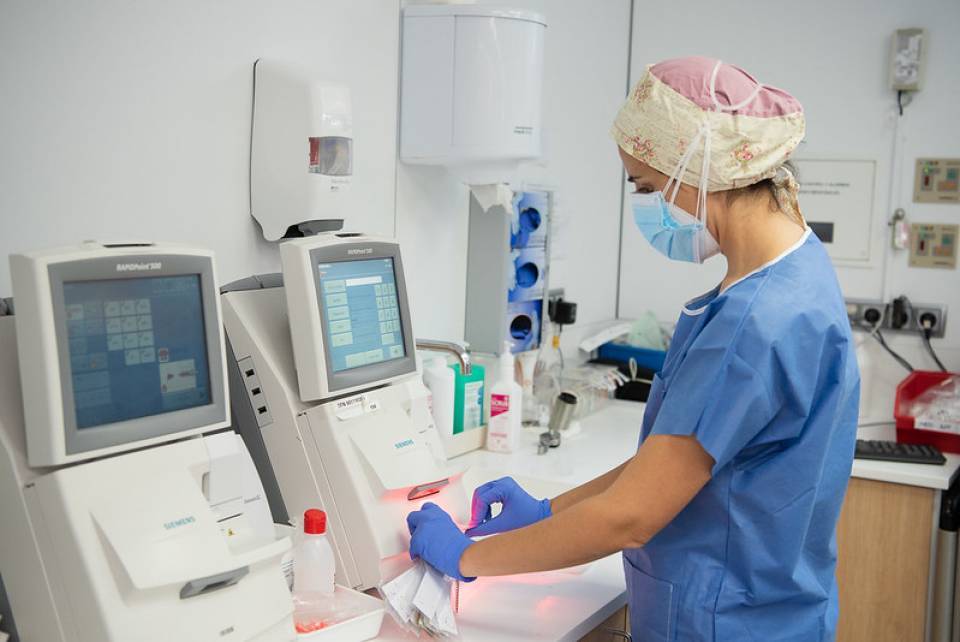The study was coordinated by Dr. Josep Maria Miró, doctor in the Infectious Diseases Service at the Hospital Clínic de Barcelona, leader of the Endocarditis, Cardiovascular Infections and Experimental Model research group, and member of the IDIBAPS AIDS and HIV Infection group, and by researchers at the Centre of Epidemiological Studies on Sexually Transmitted Infections and AIDS in Catalonia (CEEISCAT). This study has identified the factors that determine a higher risk of suffering a severe form of COVID-19 among people living with HIV. Having a detectable viral load and having been born outside of Spain, being over 65 years old, and suffering other chronic diseases are all determining factors for suffering severe forms of COVID-19, as well as for hospitalization, admission to an ICU, or death.
The researchers carried out the study within the framework of the PISCIS cohort of people living with HIV in Catalonia and the Balearic Islands, and involved researchers from the 16 Catalan hospitals in the cohort so as to describe the determinants of severe COVID-19 in people living with HIV in Catalonia. In order to do this, data from people being followed up in the cohort were cross-checked with data from the Agency for Health Quality and Assessment of Catalonia (AQuAS) Public Data Analysis for Health Research and Innovation Programme (PADRIS). Researchers identified 749 people (5.7% of the cohort) diagnosed with SARS-CoV-2 between 1 March and 15 December 2020, of whom 14% were admitted to hospital with COVID-19. Seven of these patients were admitted to an intensive care unit, and a total of 13 patients died.
The study analyses which chronic comorbidities are associated with severe forms of COVID-19, identifying arterial hypertension, cardiovascular disease, chronic kidney diseases and cancer as the pathologies that raise the risk of a serious outcome considerably.
On the other hand, the principal investigators of the PISCIS cohort, Dr. Josep Maria Miró and Jordi Casabona, director of the CEEISCAT, highlight the fact that, “people aged 65 and over living with HIV are three-and-a-half times more likely to have a severe COVID-19 outcome than younger people. Similarly, being born outside of Spain is also a key factor in terms of the risk of suffering a severe form of COVID-19 among people living with HIV in Catalonia.”
The researchers also examined the relationship between the CD4 cell count, the viral load and the severe COVID-19 outcome. They found that, although the CD4 count does not affect the risk of severe COVID-19 in people with a suppressed viral load, in people with a detectable HIV viral load, there is an association with a higher risk of a severe COVID-19 outcome.
The study, subsidized by the “la Caixa” Foundation, which has been supporting epidemiological HIV research in Catalonia for years through the PISCIS cohort, concludes that the risk factors identified should be used to prioritize people with HIV in terms of testing strategies, clinical management and vaccination programmes against SARS-CoV-2, especially in people with an unsuppressed HIV viral load and a low CD4 cell count, as well as those with a high number of comorbidities.




